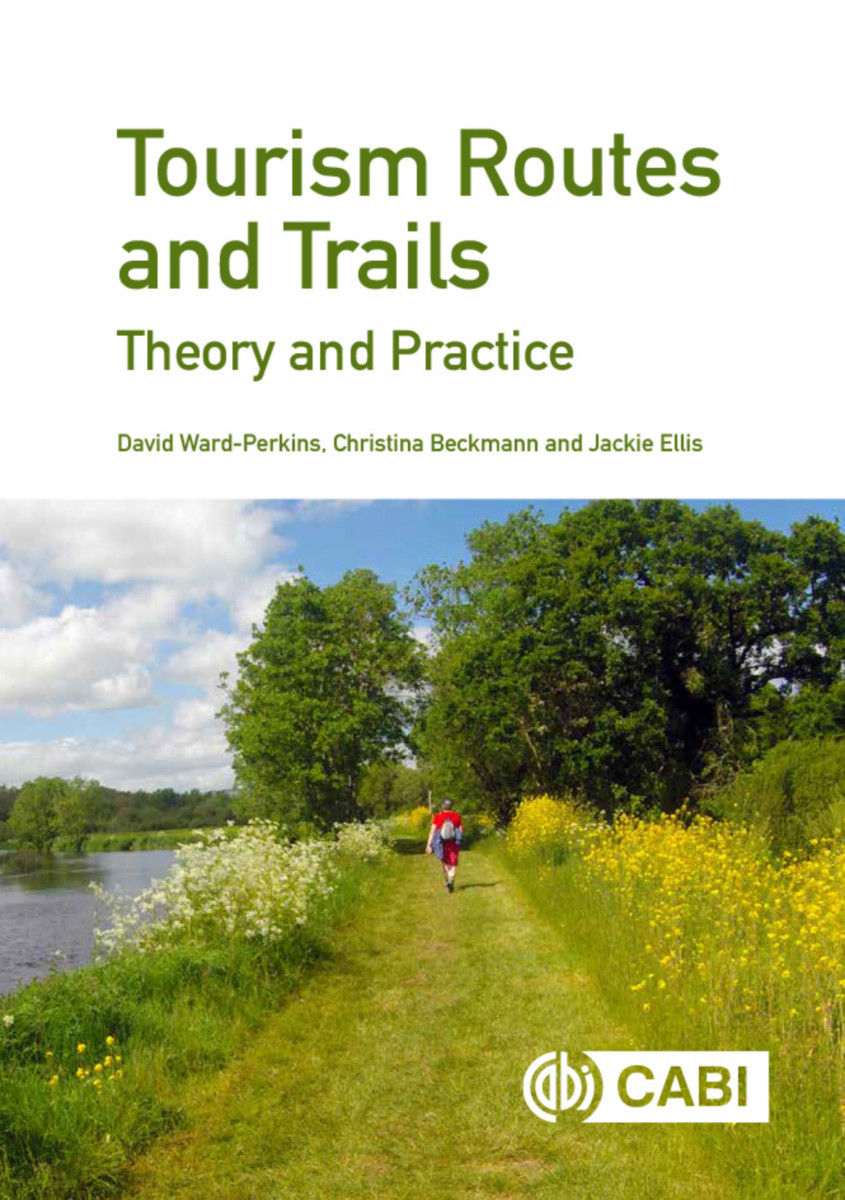Tourism Routes and Trails
Theory and Practice
- Publisher
CABI - Published
9th January 2020 - ISBN 9781786394774
- Language English
- Pages 184 pp.
- Size 6" x 9"
- Publisher
CABI - Published
15th February 2020 - ISBN 9781786394767
- Language English
- Pages 184 pp.
- Size 6" x 9"
Tourism Routes and Trails plunges into the world of "extended" tourism, offering an exploration of the "routes" phenomenon whereby tourism is no longer for a given destination, but extends over multiple sites, a territory or landscape. Covering how such routes are created, often as ways of clustering experiences, it also reviews their effects on tourism businesses, local populations and other stakeholders. Emphasizing the critical role of local communities, volunteers and small businesses, as well as those who provide strategic direction and funding, the book:
- Is based in tourism theory, but focuses on the models and practice of route formation;
- Includes a rich selection of contemporary examples and cases, showing the reader best practice as well as illustrating challenges and risks;
- Covers both strategic issues of concern to nations, regions and local authorities, and the complex dynamics occurring on the ground, such as the role of grass-roots organizations and local communities.
1: Tourism Routes and their identity
Case Study: Developing themed routes in Latin America: The Camino Real
2: Routes, culture and human experience
Case Study: Blue Ridge Music Trails
3: The three stages of tourism
Case Study: Arctic Coast Way
4: Trends
Case Study: The Brazilian long-distance trails network
5: The meaning of routes
Case Study: Lake Abbé and the Djibouti-Ethiopia LALA Transboundary Hiking Trail
6: The family of tourism routes
Case Study: Modern pilgrimage trails in Europe
7: Strategies of nations, regions and local bodies
Case Study: ‘La Route des Vins’: an engine for tourism in Alsace
Case Study: The Jordan Trail
8: Routes and the tourism industry
Case Study: QHAPAQ ÑAN
9: A roadmap for route development
Case Study: The olive oil greenway
10: The impact and benefits of routes and trails
David Ward-Perkins
David Ward-Perkins has been an independent consultant since 2002, with a background in business and economic development. He is an expert in the development of destinations with a strong cultural or environmental character. He has over 30 years' experience in large- and small-scale tourism development projects, throughout Europe, in North America and around the Mediterranean basin. Recent projects of David's have included strategic plans for mountain resorts and coastal areas, for urban fringe regeneration, for major heritage sites and for wildlife reserves. Important components of all these projects have been the consideration of environmental balance and the evaluation of the short and long-term economic impacts of tourism development.
David also teaches part-time at the Centre for Tourism Management of SKEMA Business School (Sophia Antipolis, France), running courses on strategic and sustainable tourism, and destination management.
Christina Beckmann
Christina Beckmann contributed large portions of this book, including cases on Qhapaq Ñan and the Jordan Trail, as well as sections and chapters relating to adventure tourism and walking trail development. In addition, she briefed and involved many of the secondary contributors in these fields. In her position as Senior Director, Strategy and Impact at the Adventure Travel Trade Association (ATTA), Christina provides guidance research to support the use of tourism as a tool for environmental conservation and economic development. She has twenty years consulting and research experience working at the intersection of tourism, environment, economic development and entrepreneurship. Prior to joining the ATTA Christina consulted with government tourism ministries to develop adventure tourism market growth plans. A frequent collaborator and speaker, Christina's writing can be found in numerous industry trade and general publications, including the National Geographic and publications by Sagamore: "Adventure Programming" and "Travel for the 21st Century." More of her background and writing can be found at christinabeckmann.com.
Jackie Ellis
Jackie Ellis's tourism background covers experience of both private and public sector work, including 17 years in UK destination management. She became an independent consultant in 2006, using her knowledge of product development, communications and the visitor experience to assist NGOs, destinations, sporting venues and attractions across the UK, Europe, South America and The Middle East. Jackie's recent projects include rural and urban visitor experience audits, product development for a new English touring route, project managing coastal and countryside tourism development initiatives, and providing communications support for destinations, attractions and events. For the past five years she has delivered vocational training for SMEs working in sustainable tourism, with a particular emphasis on outdoor activities and on food. She has written themed trails for National Parks and town walking tours. She writes and edits case studies for VisitEngland and VisitBritain; edited the Handbook on Transnational Tourism Themes and Routes for the ETC and UNWTO (not yet published), and delivers projects under the EU Erasmus+ program working with partners in multiple countries. One of her earliest projects involved the creation of St Cuthbert's Way, a long distance footpath running form Melrose in the Scottish Borders to Lindisfarne in Northumberland. She also co-authored Welcome Host Gold, the national customer service training program. Jackie is a Fellow of the Tourism Management Institute, member of the Tourism Society, and former member of the European Union of Tourism Officers.


